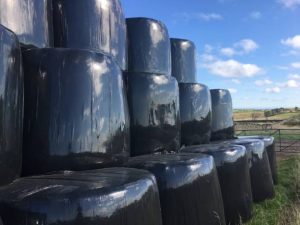Posted on September 26, 2022
What Is Baler Twine?
Baler twine is a small-diameter twine made from sisal or synthetic materials and is used to tie up fibres. Its tensile strength ranges from 95 to 325 psi and is ideal for tying up fibrous materials. In addition, its biodegradability makes it an ideal choice for farmers concerned with sustainability.
Reyenvas
 If you’re a farmer looking to purchase a baling twine, you should consider the brand Reyenvas. This company is part of the Armando Alvarez Group, and its baling twines are among the best in the industry. The brand has many different styles, and the quality is evident in the testimonials of other farmers who have used it. Among the more popular baling twines are the Max2Twine and PowerPress twines. The company also produces Black Label baling twine, made from post-industrial waste. For quality baler twine, check out at https://silagewrap.com.au/small-square-baling-twine/.
If you’re a farmer looking to purchase a baling twine, you should consider the brand Reyenvas. This company is part of the Armando Alvarez Group, and its baling twines are among the best in the industry. The brand has many different styles, and the quality is evident in the testimonials of other farmers who have used it. Among the more popular baling twines are the Max2Twine and PowerPress twines. The company also produces Black Label baling twine, made from post-industrial waste. For quality baler twine, check out at https://silagewrap.com.au/small-square-baling-twine/.
Reyenvas baler twine is made from long fibres that are extra strong. It is suitable for round balers and is treated to repel pests. It is also safe for use with square balers. Reyenvas baling twine is made from high-quality materials and is approved by leading manufacturers. It is ideal for professional users and will save them time and money.
Sisal
Sisal baler twine is a biodegradable material used to wrap hay bales. This green, durable fibre is resistant to insects and rodents and has a 120 lb knot strength. It is often sold by the bale and can be up to 10000 feet long.
It is produced from the leaves of the Agave sisalana plant, which looks like a yucca plant. It takes about five years for the plant to reach maturity. After that, the plant’s fibre is harvested by crushing the leaves, washed and woven into matting or rugs.
Polypropylene
Polypropylene baler twine is a plastic material used to make baling twine. It has several advantages over traditional twine materials, such as its practicality, safety, and environment-friendliness. It can also help you save on capital costs. Its main component is polypropylene, which guarantees strength and softness.
Polypropylene twine is single-ply and has a diameter of 2.5 to 3mm. It is often used for general-purpose twining because it is lightweight, durable, and will float in water. It is usually wrapped individually and comes on a centre-pull spool. For quality baler twine, check out at https://silagewrap.com.au/small-square-baling-twine/.
Biodegradability
If you’re looking for an environmentally friendly baling twine for your baling machines, biodegradability may be one of the top considerations. Biodegradable twine is not only odourless but can also reduce your waste by up to 50%. In addition, it won’t wrap up animals or wagon wheels when left in a field.
Biodegradable baler twine is a great alternative to synthetic twine. These twines are made from sisal, a natural fibre that is both strong and biodegradable. They are perfect replacements for synthetic fibres, and they’re perfect for square balers. They are also made from the best machinery, including the most advanced technology.
Colours
Baler twine is available in various colours depending on the application. Some twine suits low-demanding conditions, while others are best for baling straw and high-density bales. Baler twine is produced by melting raw materials in an extruder. The material flows through a flat head to form a sheet.
Baling twine is twisted into a rope-like cylinder and is then packaged into coils and pallets for commercialization. Several companies manufacture baler twine. Reyenvas, a Spanish company, is one of the leading producers. Its products are designed specifically for baling machines and are approved by many leading baling machinery manufacturers.
Sizes
When it comes to baler twine, there are several different sizes. The smallest and most common is the small square bale, which is most suitable for hobby farmers and those who use the bales for feed for livestock. This type of bale is easy to handle and store in a shed. Venus twine, invented in 1984, is also available in small square sizes. This type of twine is made from polypropylene and is good for various crops, including grains, corn, and hay.
There are several sizes of baler twine available, and each size has its own set of benefits. For example, the strongest small square bale twine has a tensile strength of 145kg and knot strength of 88kg. It comes in a high visibility blue colour and is recommended for bales with a high density. In addition, it has extra length per ball, meaning less downtime in the paddock.
Recommendations
When selecting baler twine, you should first consider the thickness of the twine and its ability to form a stable knot. Thicker twine is harder to wind and may have long tails, increasing the knot’s risk of opening up after the baler releases. This is especially true if the twine is not sized properly.
High-tech baling machines need special baling twine, and you must choose twine with the right weight, meter weight ratio, and elongation at breakage. By making an informed decision, you can reduce the time and money required for silage baling. For quality baler twine, check out at https://silagewrap.com.au/small-square-baling-twine/.
